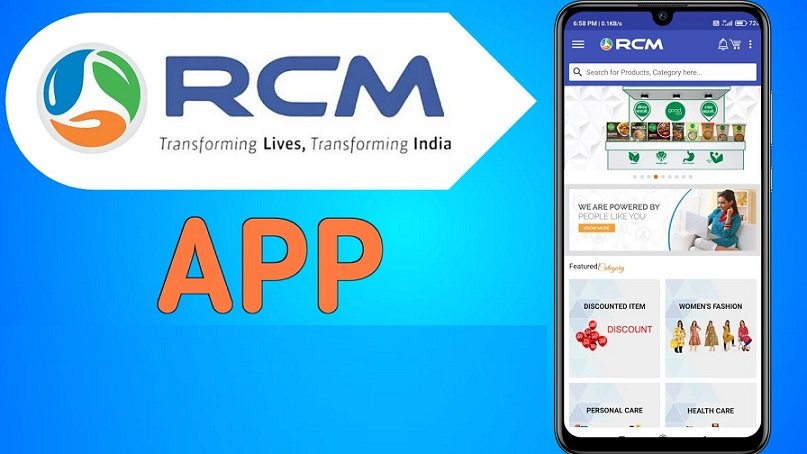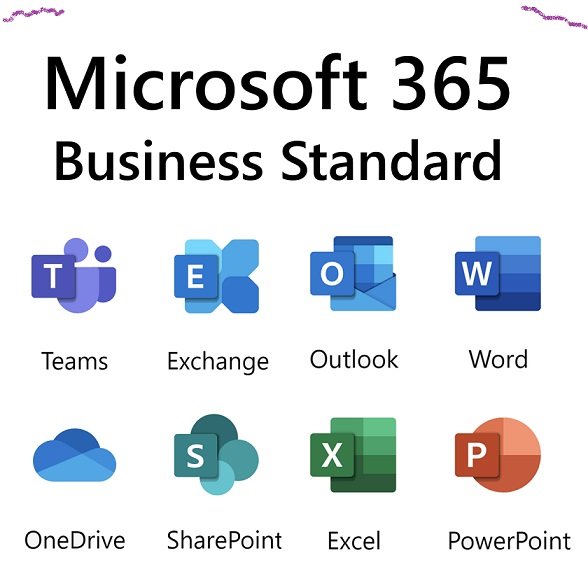Business Development Officer: The Ultimate Guide to the Role, Responsibilities, Skills, Salary, and Career Path
Introduction
In today’s highly competitive business environment, companies strive to improve their market presence and boost profits. One of the key players in this process is a Business Development Officer (BDO). As the name suggests, the BDO’s role revolves around growing and developing business opportunities for an organization, ensuring that it stays ahead of the competition and maximizes its potential. If you’re considering a career in business development or simply looking to learn more about this vital position, this comprehensive guide will cover everything you need to know, from the roles and responsibilities of a Business Development Officer to the skills required, salary expectations, and career paths.
Table of Contents
- What is a Business Development Officers?
- Key Responsibilities of a Business Development Officers
- Skills Required for Business Development Officers
- Education and Qualifications
- Salary Expectations of a Business Development Officers
- Career Path and Opportunities for BDOs
- Challenges Faced by Business Development Officers
- Business Development Officer vs. Sales Manager
- Importance of a Business Development Officer in Today’s Economy
- FAQs about Business Development Officers
- Conclusion
1. What is a Business Development Officers?
A Business Development Officer is responsible for identifying and creating new business opportunities, fostering relationships with potential clients, and driving growth for the company. They work closely with various departments, including sales, marketing, and operations, to ensure the organization’s success in a competitive market. The role often involves strategic planning, negotiation, market research, and relationship management.
BDOs can work in various industries such as technology, finance, healthcare, and more. Their primary goal is to help the company expand its customer base, increase revenue, and maintain long-term profitability.

2. Key Responsibilities of a Business Development Officer
The day-to-day duties of a Business Development Officer are diverse and can vary depending on the industry, company size, and specific objectives of the organization. Below is a breakdown of some common responsibilities:
a. Identifying New Business Opportunities
One of the primary tasks of a BDO is identifying potential business opportunities, which could involve:
- Market research to identify gaps and unmet needs.
- Networking at events and conferences to meet potential partners.
- Analyzing competitor strategies and finding ways to outperform them.
- Researching trends in the industry and leveraging these insights for growth.
b. Building Relationships
A BDO often spends a significant amount of time building and maintaining relationships with clients, stakeholders, and industry partners. This could involve:
- Client outreach to generate interest in the company’s products or services.
- Regular communication with potential clients through emails, calls, or meetings.
- Negotiating contracts and closing deals with new clients.
c. Strategic Planning
BDOs are expected to contribute to the overall business strategy by:
- Developing business plans and setting goals for revenue generation.
- Aligning business objectives with the organization’s vision and mission.
- Conducting SWOT analysis (Strengths, Weaknesses, Opportunities, and Threats).
d. Sales and Marketing Collaboration
BDOs often collaborate with the sales and marketing teams to ensure the company’s offerings are positioned correctly. This could involve:
- Assisting in the development of marketing strategies.
- Coaching sales teams to help them close deals with potential clients.
- Providing market feedback to inform product development.
e. Reporting and Monitoring
A Business Development Officer regularly monitors performance and tracks key metrics. This could include:
- Reporting on revenue generation and growth.
- Tracking sales performance and adjusting strategies as necessary.
- Preparing presentations for senior leadership on the company’s growth strategies.
3. Skills Required for Business Development Officers
A Business Development Officer needs a diverse skill set to succeed. These skills combine business acumen, communication abilities, and strategic thinking. Here are some essential skills for a BDO:
a. Communication Skills
Strong communication is key to building relationships and negotiating deals. A BDO must:
- Be able to articulate ideas clearly in writing and speech.
- Engage in active listening to understand client needs.
- Be able to negotiate effectively and reach mutually beneficial agreements.
b. Analytical Skills
BDOs need to analyze market data, trends, and performance metrics. Skills in this area include:
- Data interpretation to identify patterns and insights.
- Ability to use CRM tools and business analytics platforms.
- Problem-solving skills to address challenges as they arise.
c. Strategic Thinking
BDOs must be able to think strategically to drive business growth:
- Develop long-term plans for market expansion.
- Identify and evaluate new business models.
- Make decisions that align with both short- and long-term goals.
d. Negotiation and Persuasion
BDOs are often tasked with negotiating contracts and persuading stakeholders to make decisions that benefit the business. This requires:
- Strong persuasion skills to convince clients to choose the company’s products or services.
- Ability to negotiate favorable terms in contracts and agreements.
e. Time Management and Organization
A Business Development Officer often juggles multiple projects at once, so being highly organized is essential:
- Prioritizing tasks to meet deadlines.
- Managing client appointments, meetings, and follow-ups.
- Multitasking while maintaining attention to detail.
4. Education and Qualifications
To become a Business Development Officer, individuals typically need a combination of formal education and hands-on experience. Here are the basic requirements:
a. Educational Background
- Bachelor’s Degree: A degree in business administration, marketing, finance, or a related field is often preferred.
- Master’s Degree: A Master of Business Administration (MBA) can be beneficial for advancing in the field, especially for senior positions.
b. Experience
- A minimum of 2-3 years of experience in business development or sales is often required.
- Many BDOs start as sales representatives or marketing coordinators before advancing to a managerial role.
c. Certifications
While certifications are not mandatory, some can enhance career prospects:
- Certified Business Development Expert (CBDE)
- Salesforce Certified Business Development Representative
- Project Management Professional (PMP)
5. Salary Expectations of a Business Development Officer
The salary of a Business Development Officer can vary depending on factors such as experience, education, industry, and location. Below is a general overview of salary expectations:
| Experience Level | Average Salary (US) | Annual Bonus |
|---|---|---|
| Entry-Level (0-2 years) | $50,000 – $70,000 | $5,000 – $10,000 |
| Mid-Level (3-5 years) | $70,000 – $90,000 | $10,000 – $15,000 |
| Senior-Level (5+ years) | $90,000 – $120,000 | $15,000 – $20,000 |
| Top-Level (Director/VP) | $120,000 – $200,000 | $20,000 – $50,000 |
Salaries can also vary depending on industry and geographical location. For example, BDOs in tech companies or financial institutions may earn higher salaries compared to those in other industries.
6. Career Path and Opportunities for BDOs
A career as a Business Development Officer can offer significant opportunities for advancement. Depending on experience and success, a BDO may progress to senior roles, such as:
- Business Development Manager
- Director of Business Development
- Vice President of Sales
- Chief Revenue Officer (CRO)
Additionally, many BDOs leverage their experience into entrepreneurial ventures or consulting roles, as the skills learned are transferable across industries.
7. Challenges Faced by Business Development Officers
The role of a Business Development Officer can be demanding, and BDOs often face several challenges, including:
- Intense competition from other businesses and professionals.
- Difficulty in securing new clients in saturated markets.
- The constant need to adapt to changing market conditions and customer needs.
- Managing expectations from senior leadership while meeting performance targets.
8. Business Development Officer vs. Sales Manager
Many people confuse the roles of a Business Development Officer with a Sales Manager, but they are distinct positions. While both roles focus on growth, here’s how they differ:
| Aspect | Business Development Officer | Sales Manager |
|---|---|---|
| Primary Focus | Identifying new business opportunities | Managing the sales team and strategy |
| Key Responsibility | Strategic market research and partnership building | Driving sales goals and targets |
| Skills | Strategic planning, market analysis, networking | Leadership, sales strategies, team management |
| Growth Path | May move into executive roles | Typically progresses in sales leadership |
9. Importance of a Business Development Officer in Today’s Economy
In the modern business landscape, the role of a Business Development Officer is increasingly vital. With rapid technological advancements and global market shifts, organizations need skilled professionals who can identify opportunities and drive growth. A well-functioning BDO can be the key to a company’s long-term success and sustainability.
10. FAQs about Business Development Officers
Q1: What’s the difference between a Business Development Officer and a Business Development Manager? A Business Development Officer typically focuses on identifying new business opportunities and strategic planning, while a Business Development Manager is more involved in the tactical aspects of executing these strategies.
Q2: Can a Business Development Officer work remotely? Yes, many Business Development Officers can work remotely, especially those who focus on client communication, research, and strategic planning.
Q3: How do I become a successful Business Development Officer? To succeed as a BDO, develop strong communication and negotiation skills, stay updated on industry trends, build a strong network, and continuously refine your strategic thinking abilities.
11. Conclusion
The role of a Business Development Officer is a crucial one in the growth and success of any company. With a mix of strategic thinking, relationship-building, and sales expertise, a BDO contributes to both the short- and long-term success of an organization. Whether you’re considering a career in this field or looking to understand its significance in today’s business world, this guide provides a comprehensive overview of the role, skills required, salary expectations, and more.




